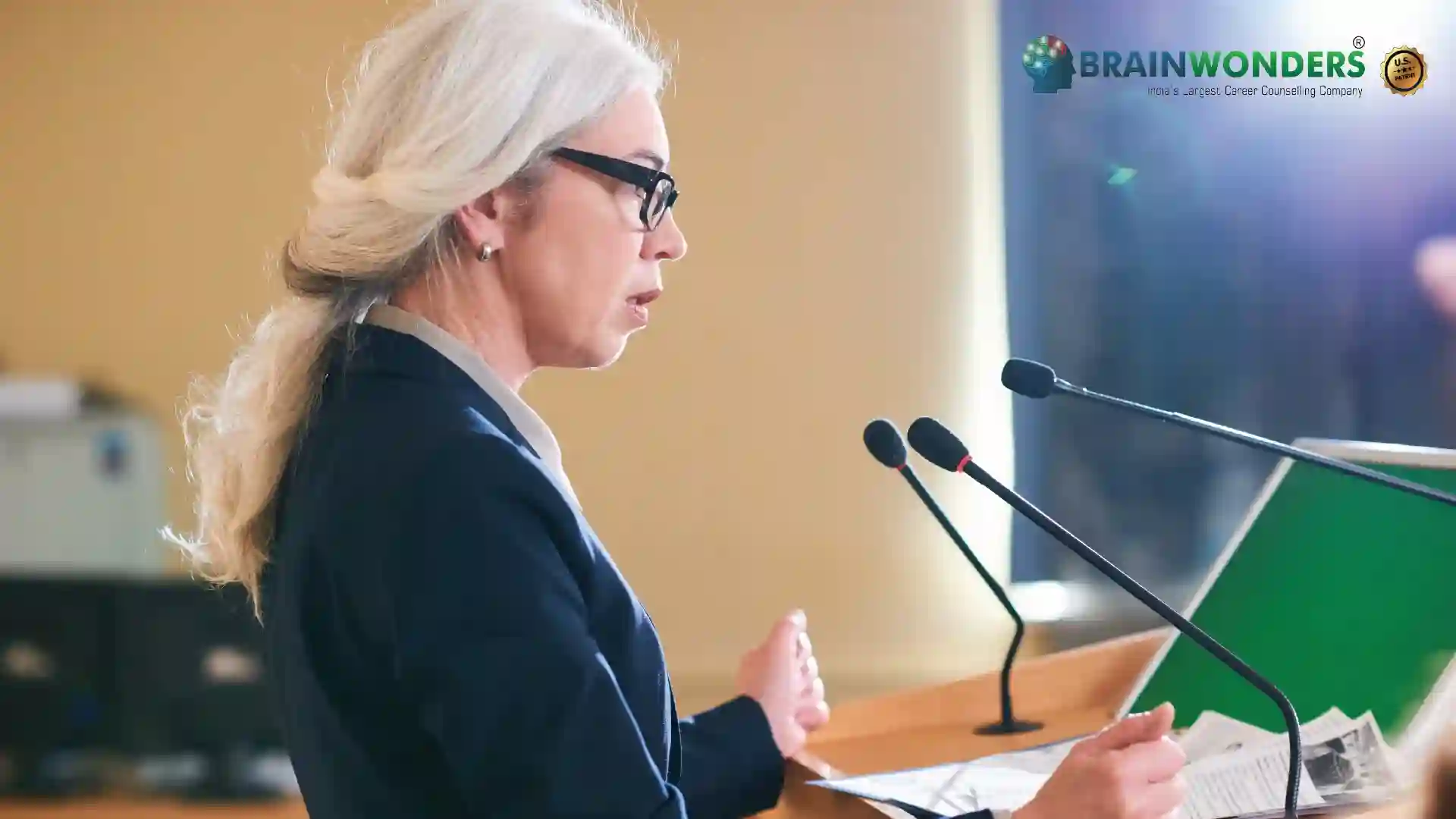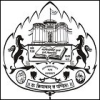How to become a Politician
Overview, Courses, Exam, Colleges, Pathways, Salary

Overview
Who is Politician ?
A politician is an individual who is actively involved in the field of politics and public affairs. Politicians seek elected or appointed positions in government at local, regional, national, or international levels. They play a crucial role in shaping public policy, making decisions, and representing the interests of their constituents or the population they serve.Politicians engage in various activities, including campaigning, public speaking, attending debates, and interacting with the public to garner support and votes. Once elected, they may serve in legislative bodies, executive offices, or administrative roles, depending on the level of government.
Their responsibilities involve:
- Formulating and passing laws.
- Allocating budgets.
- Addressing societal issues.
- Representing their constituents' concerns and viewpoints.
They must navigate complex political landscapes, build coalitions, negotiate with other politicians, and work towards achieving their policy goals.Influential politicians possess strong leadership, communication, and decision-making skills. They must be responsive to the needs of their communities and demonstrate a commitment to public service. Politics can be challenging and competitive, and successful politicians are often driven by a desire to enact positive change and contribute to the betterment of society.
Typical day at work
What does Politician do?
- Actively analyze political behaviour and political systems
- Express beliefs and views on governance and volunteer for activities to support their beliefs
- Contest elections for being elected to the Council of Ministers of the State or the Union, and become members of a State Legislature or Union Parliament, the highest executive body
- Attend parliament sessions and represent their constituencies
- Take part in parliamentary debates where issues and laws related to governance are tabled, voted and passed
- Plan and carry out development tasks for social welfare
- Listening to and addressing public concerns and demands
- Propose, vote on, and enact laws and policies that relate to the needs of the public, including budget plans and funding allocation
- Making public appearances at various political functions and events
- Attending public or private meetings to hear about and discuss political issues
- Serving on committees
- Meeting with constituents and lobbyists
- Campaigning for election or re-election
- Develop and sanction the policies with regard to Education, Human Resource Development, Social Welfare, Commerce, Trade & Industry, Environment, Rural & Urban Development, Transport, Communications, Health, Multi-Media, Promotion of Arts, Culture, Science & Technology, Agriculture, Natural Sciences, National Economy or Finance, Accounts, Excise & Taxation, etc.
- Plan and guarantee defence of the country against external aggression as well as internal criminals
- Safeguard the interests of the country
- Regulate the relationships of the State with other States
- Uphold law and order, national solidarity, and public peace
- Look after matters relating to the interest of various sections of the society such as the Youth, Women, Sportspersons, Family planning, Population-growth, Unemployment, etc.
- Resolve the conflicts between diverse or aggressive interests of various communities.
- Relief in the case of natural calamities
- Govern all the internal and external affairs of the State.
Abilities and Aptitude needed
What are the skills, abilities & aptitude needed to become Politician?
- Leadership: Politicians must demonstrate strong leadership qualities to guide their teams, inspire supporters, and make decisions that benefit their constituents.
- Communication: Effective communication skills are crucial for politicians to convey their ideas, engage with the public, speak at events, and present policies.
- Public Speaking: Public speaking is vital for politicians as they regularly address large audiences, participate in debates, and represent their views to the public.
- Relationship Building: Building and maintaining relationships with constituents, other politicians, and stakeholders is crucial to garner support and collaborate on important issues.
- Problem-Solving: Politicians must be adept at analyzing complex problems and finding practical solutions to address the challenges faced by their community or constituency.
- Empathy: Empathy helps politicians understand the needs and concerns of their constituents, enabling them to make decisions that serve the public interest effectively.
- Decision-Making: Politicians must be skilled at making sound and well-informed decisions, often under pressure, to address various issues facing their jurisdiction.
- Adaptability: The political landscape can be dynamic and unpredictable, requiring politicians to be flexible and adapt to changing circumstances.
- Strategic Thinking: Strategic thinking allows politicians to effectively plan and execute their campaigns, policies, and legislative initiatives.
- Knowledge of Public Policy: Understanding public policy issues, governance, and the legislative process is crucial for politicians to propose and advocate for meaningful changes.
- Integrity: Maintaining integrity and ethics is vital for politicians to gain and retain the trust of their constituents.
- Fundraising: Politicians often need to raise funds for their campaigns, so fundraising skills are valuable to support their electoral efforts.
- Negotiation: Skilled negotiators can navigate political complexities and find common ground with opposing parties to advance their agenda.
- Political Awareness: Staying informed about current events, political trends, and the concerns of their constituents helps politicians remain relevant and responsive.
Salary
Salary for Politician?
Salary for a politician is as follows :
- Minimum Monthly Salary: The minimum monthly salary for an entry-level politician might range from INR 30,000 to INR 50,000 or more. This can vary depending on the specific government level they serve and the region they represent.
- Maximum Monthly Salary: Highly experienced and skilled politicians, especially those holding senior positions or serving at national or international levels, may earn a monthly salary ranging from INR 1,00,000 to INR 2,00,000 or more.
- Annual Salary: The annual salary for entry-level politicians could be approximately INR 3.6 lakhs to INR 6 lakhs per year. Experienced and well-qualified politicians may earn a maximum yearly salary ranging from INR 12 lakhs to INR 24 lakhs or more.
- Highest-Paying Jobs and Scope: The highest-paying jobs for politicians are often found in high-profile positions such as cabinet ministers, prime ministers, presidents, and other leadership roles in government or international organizations. Politicians with exceptional leadership skills, public speaking abilities, and a strong track record may command higher salaries. As political landscapes continue to evolve and societies face complex challenges, skilled politicians who can enact positive change and address critical issues will have career growth and advancement opportunities.
Pathways
How to become an Politician?
Entrance Exam
Entrance Exam for Politician ?
Courses
Which course I can pursue?
Best Colleges
Which are the best colleges to attend to become an Politician?
Industries
Which Industries are open for Politician?
Politicians can transition into various industries after their political careers or in parallel with their political roles. The skills and experiences gained in politics can be valuable in different sectors. Some industries open to politicians include:
- Government and Public Administration: Many politicians continue to work in government and public administration, taking on roles such as advisors, consultants, or civil servants in various government agencies or departments.
- Public Policy and Advocacy: Politicians can pursue careers in public policy think tanks, advocacy organizations, and NGOs, using their expertise to influence policy decisions and advocate for specific causes.
- Law and Legal Services: With a political background, some politicians may practice law or work as legal consultants, leveraging their understanding of government and policy issues.
- Education: Politicians often move into the education sector as professors, lecturers, or education administrators, sharing their knowledge and experiences with students.
- Media and Journalism: Politicians may transition to roles in media, working as political analysts, commentators, or columnists, providing insights on political developments.
- Corporate and Business: Some politicians move into the corporate world, taking on roles in corporate communication, public relations, government affairs, or corporate social responsibility.
- Diplomacy and International Relations: Former politicians may enter the field of diplomacy, representing their country as ambassadors, diplomats, or working for international organizations.
- Nonprofit and Philanthropy: Politicians passionate about social causes may work in the nonprofit sector or philanthropic organizations to drive positive change.
- Public Speaking and Consulting: Many politicians become public speakers or consultants, leveraging their experience to address various audiences or provide strategic advice to businesses or organizations.
- Entertainment and Media Production: A few politicians have successfully transitioned to the entertainment industry, appearing in movies, television shows, or hosting talk shows.
internship
Are there internships available for Politician?
Internships for politicians are less common than internships in other fields. However, some opportunities exist for individuals interested in pursuing a political career to gain valuable experience through internships. Here are some potential internship opportunities for aspiring politicians:
- Political Campaign Internships: Working as an intern on a political campaign can provide hands-on experience in various aspects of political campaignings, such as grassroots organizing, fundraising, event planning, and voter outreach.
- Legislative Internships: Some politicians offer legislative internships for students or individuals interested in learning about the legislative process. These internships may involve researching policy issues, drafting legislation, attending hearings, and assisting with constituent services.
- Government Internships: Interning in government offices, such as city councils, state legislatures, or congressional offices, can provide insights into the day-to-day operations of government and the policymaking process.
- Nonprofit and Advocacy Organizations: Interning with nonprofit organizations or groups focused on specific policy areas can offer experience in advocacy, public relations, and community engagement.
- Public Relations and Communication Internships: Politicians often have communication teams to manage their public image and media interactions. Interning with these teams can provide experience in public relations, media relations, and social media management.
- Research and Think Tank Internships: Think tanks and research institutions focused on public policy may offer internships to individuals interested in conducting policy research and analysis.
- Local Government Internships: Some local governments offer internship programs that allow individuals to work with city councils, mayor's offices, or municipal departments to gain insight into local governance.
Career outlook
What does the future look like for Politician?
The future outlook for politicians is likely to be influenced by various factors. As societies continue to evolve, politicians will face new challenges and opportunities. Advancements in technology and the growing influence of social media may reshape political communication and engagement with constituents.
Issues such as climate change, healthcare, economic inequality, and global conflicts will remain pressing, demanding skilled and visionary politicians who can address complex and interrelated problems.
Moreover, the changing demographics of populations may lead to shifting political landscapes and the need for politicians to appeal to diverse constituencies.
Ethics, transparency, and accountability will become even more critical as citizens increasingly expect integrity from their elected representatives.
In the digital age, politicians must navigate cybersecurity, misinformation, and data privacy issues.
Overall, the future of politicians will require adaptability, strong leadership, and the ability to build consensus across diverse perspectives. Those who can effectively harness technology, communicate authentically, and address societal challenges will likely thrive in shaping a better future for their communities and nations.







